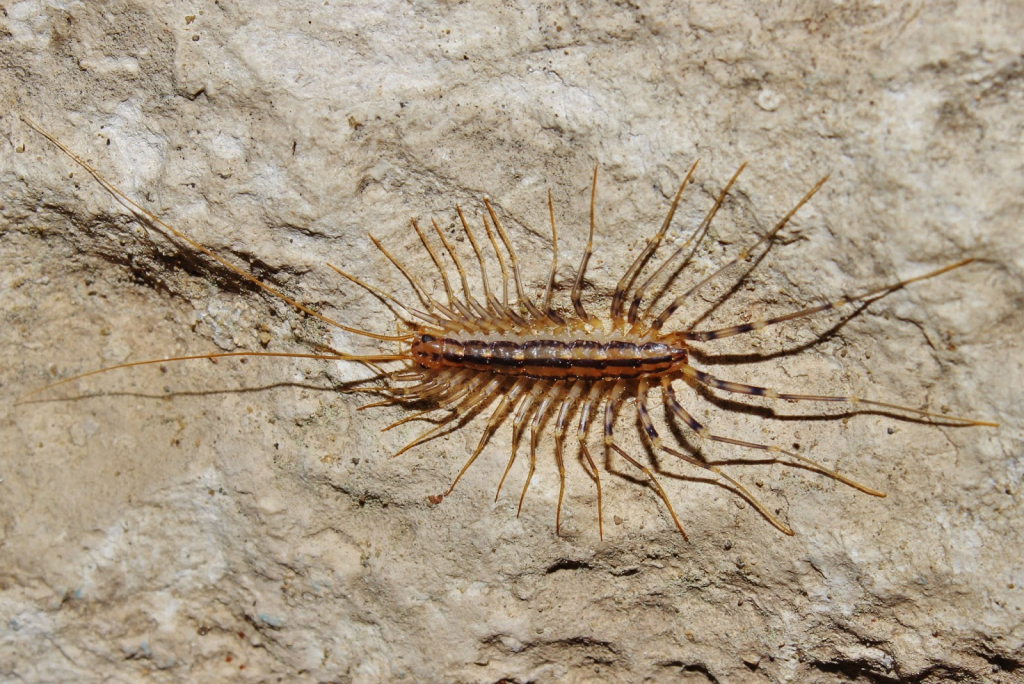House centipedes are often feared, misunderstood, and quickly exterminated when spotted crawling across a wall. With their long legs and quick movements, they’re not exactly the most welcome houseguests. But before you grab a shoe to squash one, you might want to reconsider.
Believe it or not, house centipedes are actually beneficial creatures that can help keep your home free of more troublesome pests. In fact, killing them might be doing you more harm than good. Let’s dive into why you should never kill a house centipede and what to do instead.

What Are House Centipedes?
House centipedes (Scutigera coleoptrata) are elongated, multi-legged arthropods that thrive in dark, damp places. Unlike other pests that invade homes, centipedes are not destructive, poisonous, or dangerous to humans.
They typically grow between 1 to 2 inches long, with 15 pairs of long, delicate legs that give them an unsettling, spider-like appearance. However, despite their creepy look, these creatures play a crucial role in controlling household pests.
Video: Scutigera coleoptrata
Why You Should Not Kill House Centipedes
1. They Are Natural Pest Controllers
Think of house centipedes as your free, natural exterminators. These creatures feed on common household pests, including:
Cockroaches
Spiders
Silverfish
Ants
Termites
Bed bugs
If you have a house centipede, it likely means you have other insects lurking in your home—and they’re taking care of the problem for you! Instead of using harmful chemical pesticides, you can let house centipedes reduce your pest population naturally.
2. They Are Not Dangerous to Humans
Unlike some household pests, house centipedes do not bite humans unless provoked. Even if they do, their bite is harmless to most people, causing nothing more than a slight irritation—far less painful than a mosquito bite.
Unlike cockroaches and rodents, house centipedes do not carry diseases, contaminate food, or damage furniture and clothing. They simply hunt other pests and move along.
3. They Help Control Harmful Bugs

Many of the insects centipedes feed on are much worse to have in your home. For example, cockroaches can spread bacteria, bed bugs can cause itchy infestations, and termites can damage your home’s structure.
By keeping house centipedes alive, you’re allowing them to help you get rid of the insects that actually pose a problem.
Where Are House Centipedes Found?
House centipedes love dark, humid environments. You’ll often find them in:
- Basements
- Bathrooms
- Closets
- Crawl spaces
- Under sinks
- Damp garages
These places offer the moisture and shelter they need to survive. Since they are nocturnal, you may only spot them at night when they’re hunting for food.
How to Prevent House Centipedes from Overstaying Their Welcome

Even though house centipedes are helpful, not everyone wants them inside their home. If you prefer to keep them outside while still benefiting from their pest control abilities, here’s what you can do:
1. Reduce Moisture Levels
Centipedes thrive in damp conditions, so eliminating excess moisture is key. Use dehumidifiers in humid rooms and fix any leaks in pipes or sinks.
2. Seal Cracks and Gaps
Centipedes can enter your home through tiny openings in walls, windows, and doors. Use caulk or weather stripping to close any gaps.
3. Clear Clutter
Dark, hidden spaces attract centipedes. Reduce clutter in basements, storage rooms, and under sinks to remove potential hiding spots.
4. Keep Other Pests Away
Since house centipedes feed on insects, reducing their food source can help keep them away. Regular cleaning, proper food storage, and routine pest control will help eliminate the bugs centipedes love to eat.
What to Do If You Find a House Centipede in Your Home
If you see a house centipede, avoid killing it. Instead, gently trap it in a jar or container and release it outside—preferably in a damp area like a garden or near a tree.
If you’re dealing with a centipede infestation, it’s a sign of a larger insect problem in your home. In that case, addressing the root cause—excess moisture and other pests—will help naturally reduce centipede numbers.
Final Thoughts: Let the House Centipedes Live!

Although they may look terrifying, house centipedes are actually one of the most beneficial insects you can have in your home. Instead of reaching for a shoe, consider letting them do their job—keeping your space free of roaches, spiders, and other unwanted pests.
So, the next time you spot a house centipede, resist the urge to kill it. It’s working hard to keep your home pest-free!


